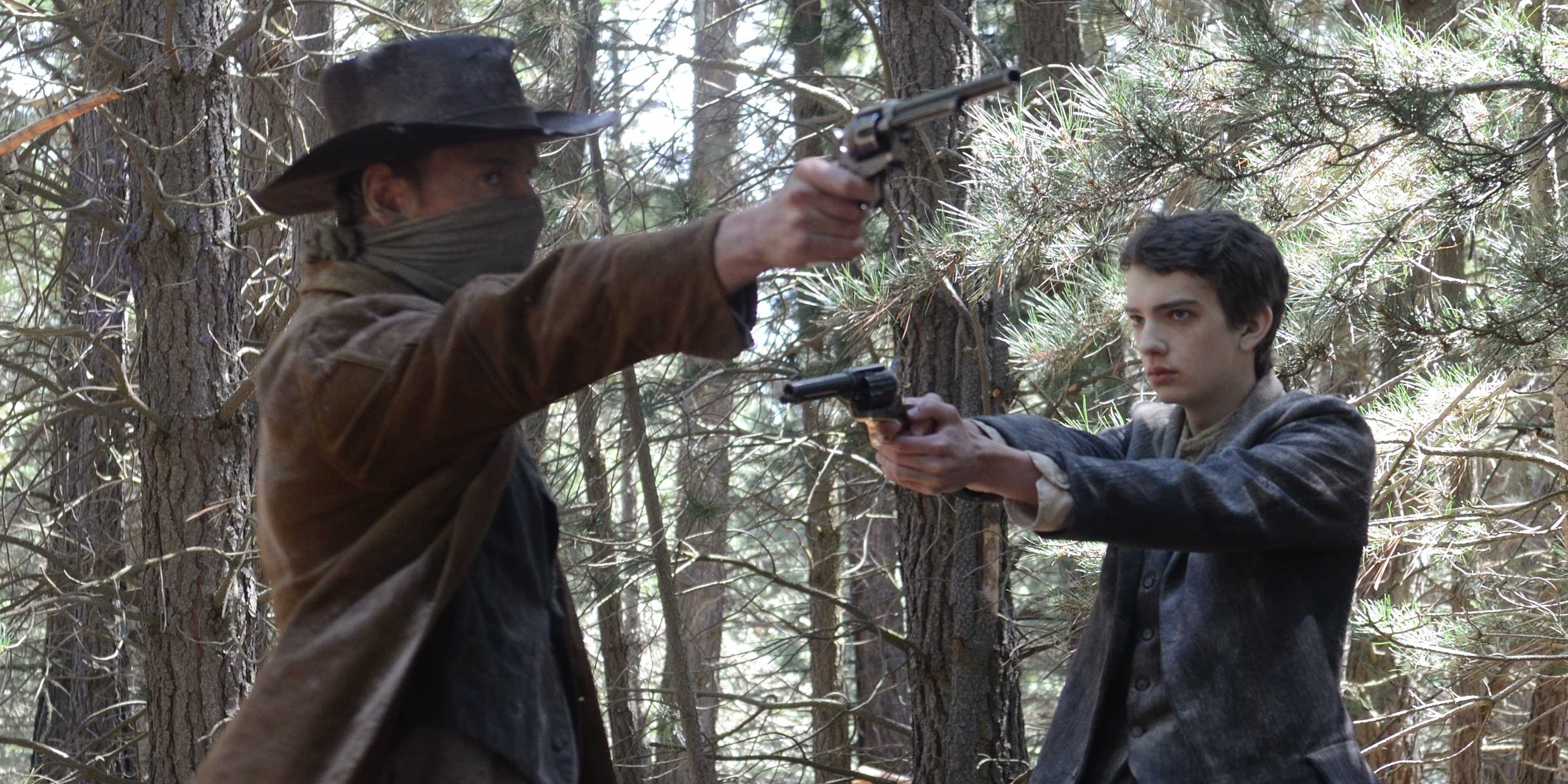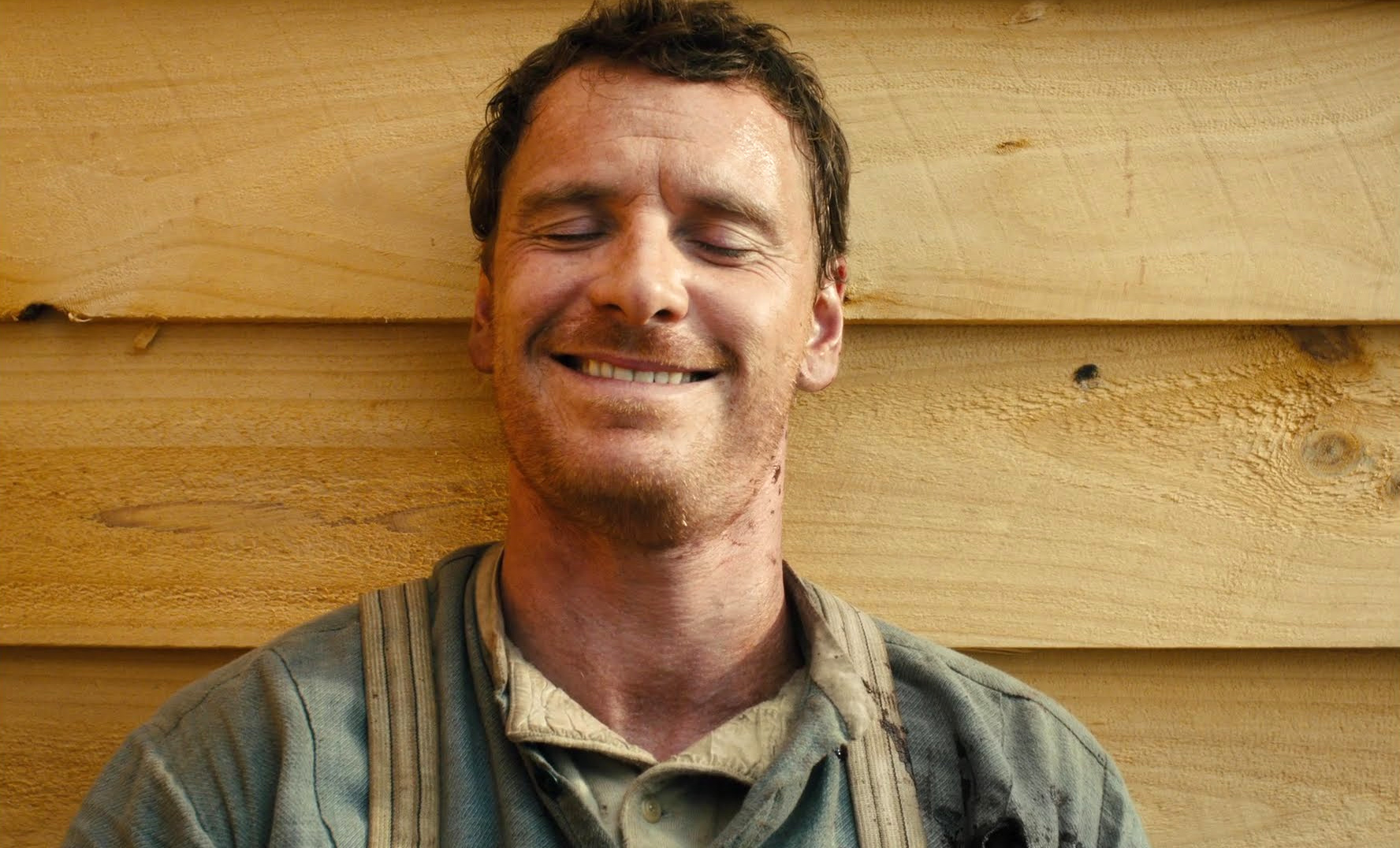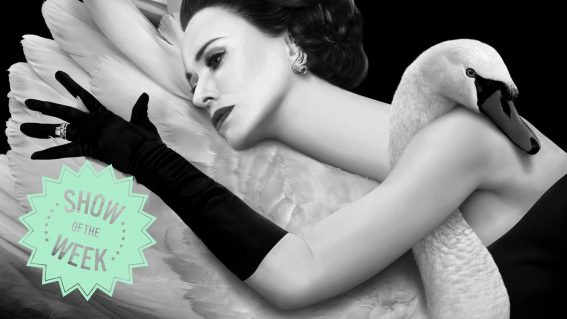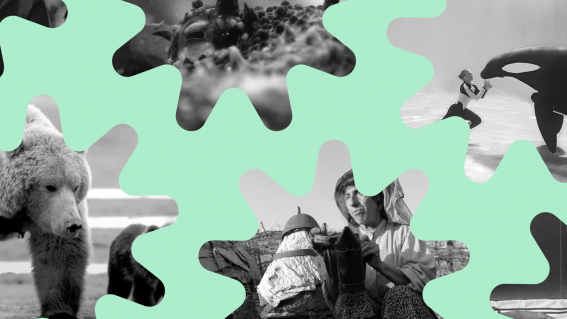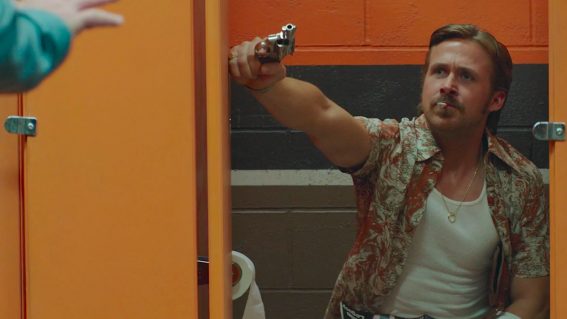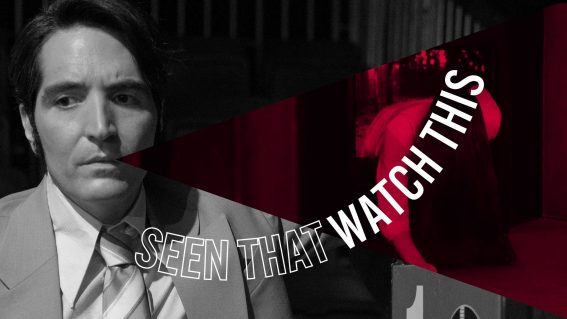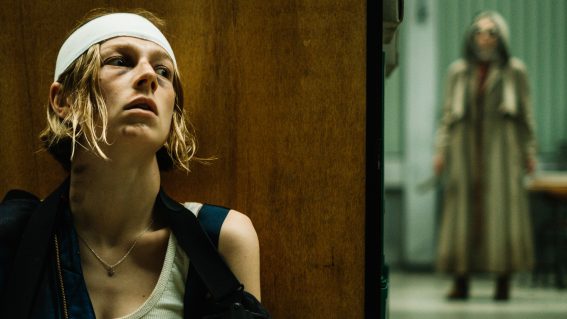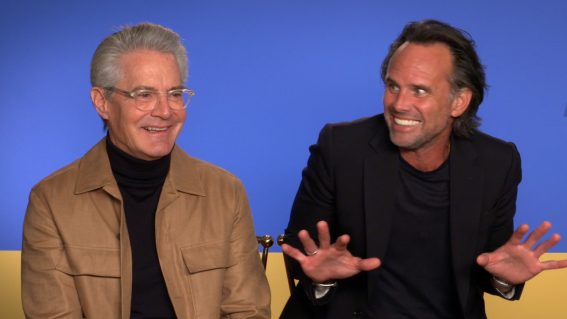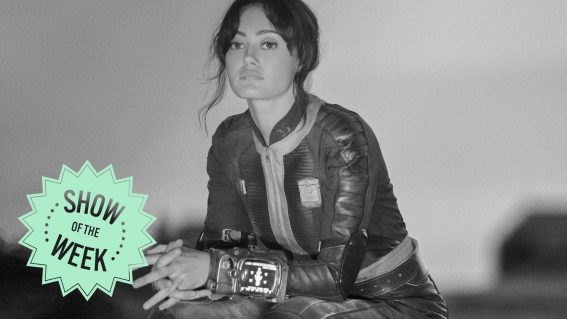Fassbender and Maclean talk ‘Slow West’ on set
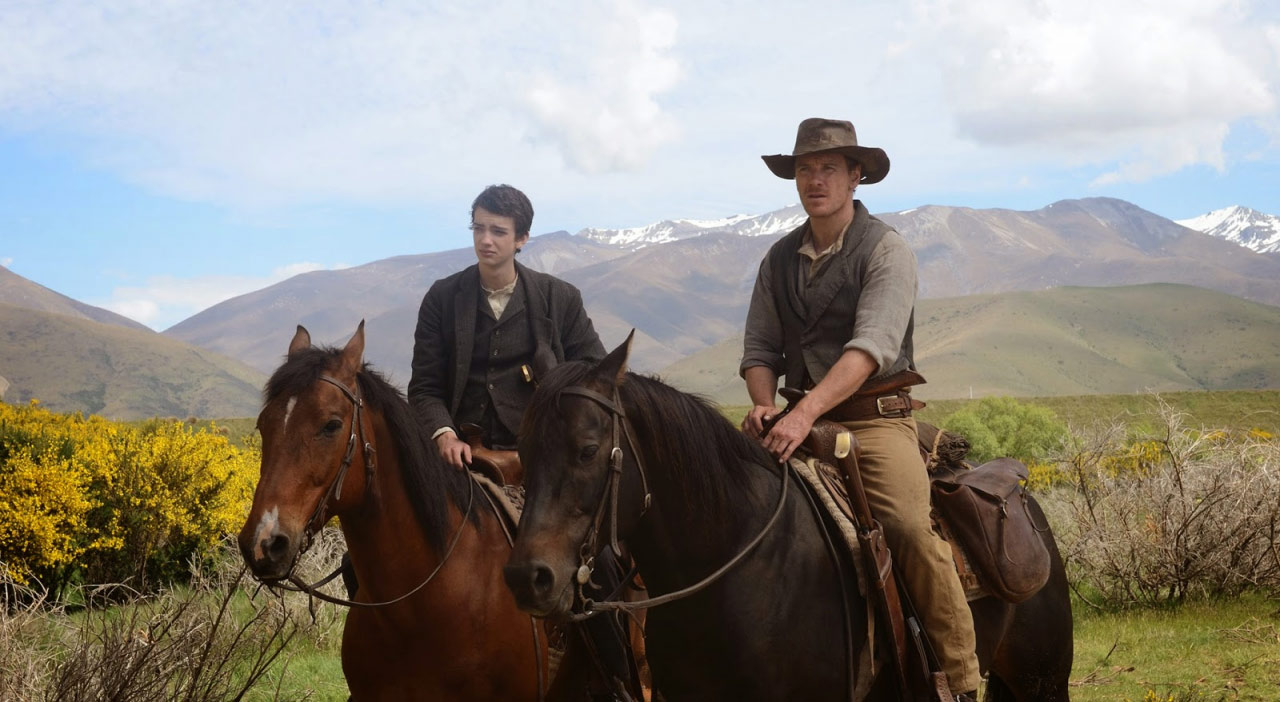
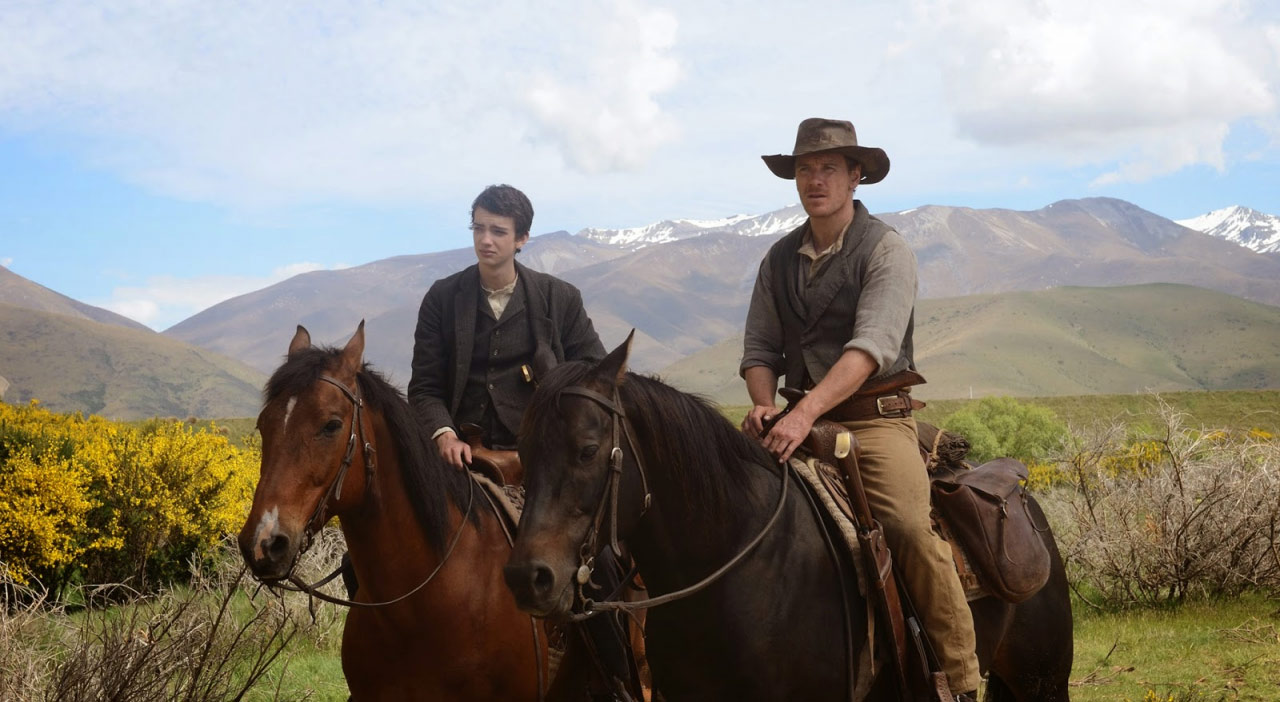
Twizel is an unusual setting for a movie production. Situated in Canterbury’s picturesque Mackenzie District, it’s just shy of fifty years old, having been built in the late 60s for workers constructing hydroelectric dams, canals and powerhouses. All looping roads and circular in nature, domiciling single men away from families, it’s a town of meticulous planning. Could there be more to Hooker Crescent, tucked discretely away to the town’s south, than a surname? With so little history I’m going to venture quite possibly…
Local hotspot Shawty’s – the self-proclaimed best restaurant, café and bar in Twizel – isn’t blessed with such literal nomenclature, at least it wasn’t when I completed a wonderfully scenic drive from Queenstown. Two hours heading northward in a rental car had proved dazzling, and offered plenty of hints as to why Aotearoa was standing in for a late 19th Century American frontier in Scottish director John Maclean’s Slow West.
After a quick refreshment, I arrived on set, where the first impression was one of calm and confidence. (although, sure, it was lunchtime). Maclean was finishing off his meal, and then joined me for a chat about the shoot.
FLICKS: How long has it been since the first idea for ‘Slow West’?
JOHN MACLEAN: Well, I started thinking about the idea a couple of years ago, it might be even three or four years ago, and I thought about the Highland Clearances [18th/19th Century forced displacements] in Scotland, and then thought about the Wild West. So then I thought it would be nice to do a story that was people from Scotland going to the West. And then also watching American Westerns, there were always Americans in the film. I’m thinking well, my understanding is that there were a lot of Germans and Swedish and Scandinavians and Irish and English and Scottish. so I thought let’s do it from that angle; from a tourist perspective which was always a nice perspective of America.
And now you find yourself a tourist here. How did that happen?
The very first issue was having Michael [Fassbender] in November, because in the Northern summer he was picked up for other films. So I was looking in November, and then Robbie Ryan the DOP was saying, “Well, New Zealand is like Colorado, why don’t we shoot it there?” And then I just came out and did a couple of recces and said yes. The more people I speak to in the crew, they’ve been wanting Westerns here for a long time, and all of them said it was a great place to shoot a Western. So I’m kind of surprised people haven’t done it sooner. I think there was a Western [yep – Good For Nothing] done here last year or a year before.
What’s the allure of the Western, and why decide to make one?
I think the first film I ever saw in the cinema was a Western. My dad took me to see it; he’s a Western fan. I think is was called something Texas Ranger – I can’t remember. But another one – a Douglas one – about a runaway stage coach, I think that laid the seed. Then, as I say, my dad’s always watched Westerns and loves them. Then, I started loving them when I started seeing things like Once Upon a Time in the West, The Good, the Bad, and the Ugly. That was the first “wow”. When I worked in a cinema we used to show them as late night double bills in Edinburgh. Then, never really thinking I would want to make a Western, especially not for a first film. It sounds a bit crazy.
Then, as I said before, I had this idea of Scottish people in the West, and much more from something that I knew would come from me, and not just tackling someone else’s world. So, after I slowly started writing it, then it was about watching lots of films, but mainly reading a lot of books, but not books about Westerns or books about the West. I read a lot of books that were written at the time of the West; Tom Sawyer, Huckleberry Finn, Mark Twain. What’s the other guy’s name? Ambrose Bierce. So, Ambrose Bierce, Mark Twain, Nathaniel Hawthorne.
And watching all the Westerns from John Ford’s early ones, then Red River, Rio Bravo, Shane, High Noon, through to all the 60s Westerns – The Wild Bunch, The Good, the Bad, and the Ugly. Into the 70s, you got McCabe and Mrs Miller through to the 80s. The 80s was a bit less of a gold mine, maybe until Unforgiven.
‘Young Guns’, ‘Silverado’ maybe? [laughs]
Yeah – and Tombstone. Then, I think, Unforgiven and then up until Meek’s Cutoff, which I think’s one of the best Westerns ever made. It’s certainly the best modern Western. But having said all of that, I was influenced by other cinema. Films influence Westerns, so mainly Japanese cinema. So, a lot of this came out of Japanese cinema, and a lot of influence would be things like Onibaba, and Woman in the Dunes and that period of Japanese cinema. Then, on top of that, just all the films I love, from Bresson to the surrealism, to Carl Dryer, Bergman… and then all of the Americans… Scorsese, everyone. I mean, you can’t say what influences anyone. It’s like music. If you listen to every single kind of music, then something will happen.
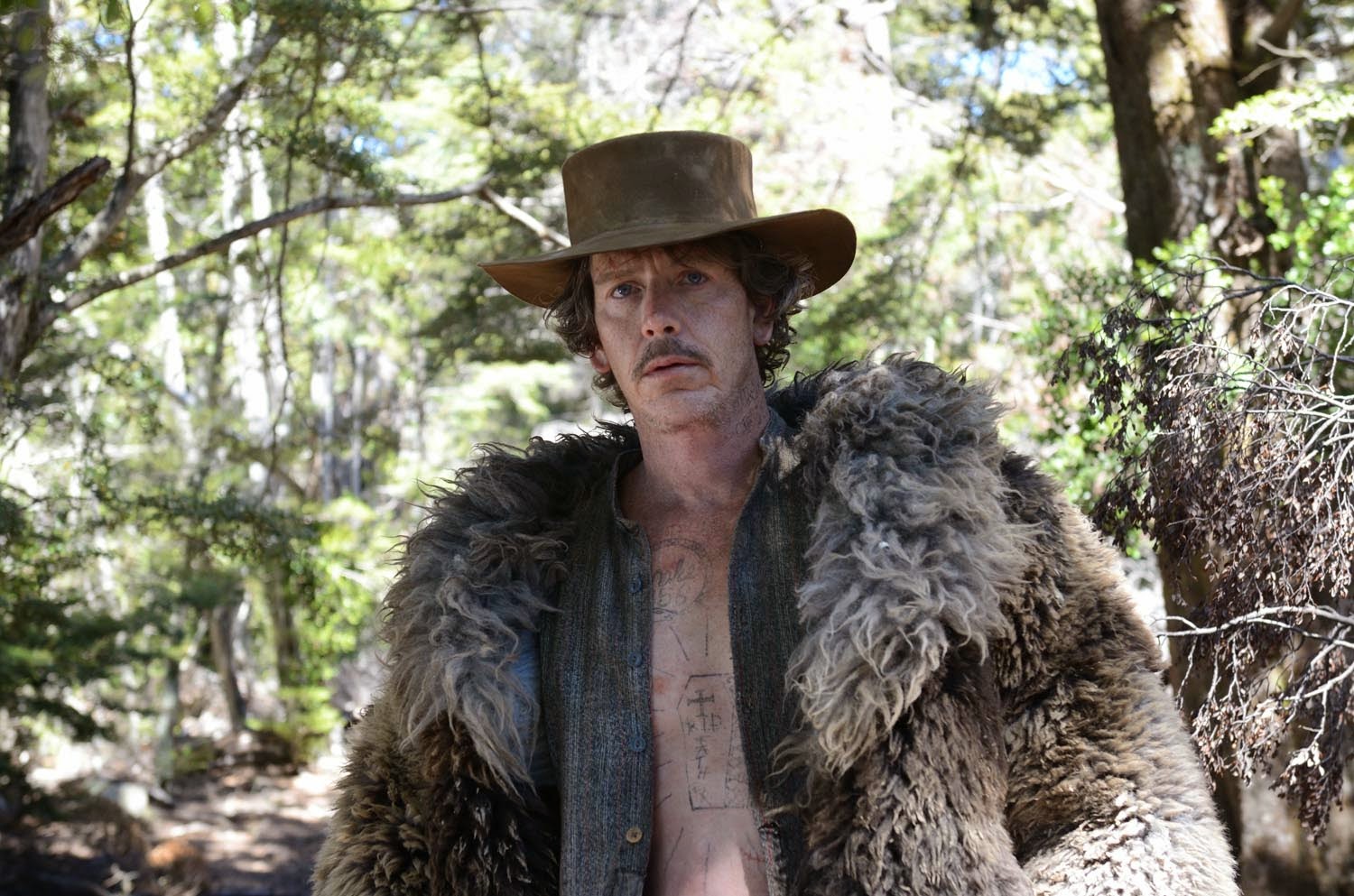
What are the elements that stand out for you the most in the Western genre?
Well, having studied the genre, you start seeing that it’s more about the man or the vigilante or the loner. So, it’s very much a sort of outside society. I always think that Westerns are kind of like the man, and then alien films are about society. And that’s why maybe cowboys and aliens together is so weird, because it’s the mixing of two different themes. But the beauty of the Western, is that you can tackle practically any genres. I mean, Westerns were melodramas. Westerns have been horrors. Westerns have been musicals. So, you can tackle anything really, and you can do it without building massive sets and filming in cities. I filmed in forests for most of this, so it felt like quite a cheap idea to do a Western. Whereas, I think, usually people think, “Westerns are expensive. Let’s do like a council estate film for my first film”. That would to me be more worrying.
So, it’s about finding the right vehicle to tell your story, and a Western is the one that’s really efficient?
The production value of pointing the camera there [points at a spectacular Mackenzie Country backdrop]. I mean, you can’t really beat that. That can look like a million dollars right there. Then, you’ve got all the other themes like contemporary themes. So, for instance, the fact that in the Highland Clearances, people were kicked off their land. And some of the same people then kicked Native Americans off their land, which is still happening now. And gun control in America, and the birth of people carrying guns and violence. There are a lot of themes that are still relevant.
You talked about Westerns being about the man, the men. From what I’ve seen here, ‘Slow West’ has very strong female characters. How does fit into the dude-centric Western?
Well, because that’s what happened! Actually, it’s funny, because people think of Westerns as being almost chauvinistic or whatever, but when you look at Westerns, female characters are stronger in Westerns than they are in a lot of other genres. Then, you’ve got things like Johnny Guitar, films that have these incredibly powerful women. I think that is also a tradition.
I think this is more true to life, because, basically, the men turn up in this film, and create havoc and don’t do much, and leave the women to sort of clean up their stupidity and mess. So, it’s kind of a bit like real life in that respect. That’s the beauty of Meek’s Cutoff, it’s taken from a female perspective of the Western, and it just shows the stupidity of man. I think that’s a good place to start with any film.

What’s it like making your first feature on the other side of the world from home?
I’ve never really thought about that so much. It’s quite nice because I don’t think there’s much difference between doing a feature anywhere in the world. I think the difference to me is whether you do it in the city or in the countryside, and the fact that we’re not in the city is just great. It’s much easier to capture an interesting vibe and the weather and light and all things that I’m interested in. So it’s more like “it’s great doing my feature outside in decent weather in beautiful landscape”. So that’s amazing. And whether this is the north of London or in New Zealand is not such a big deal when it’s just great being here.
Aside from scale of budget, amount of shots and so on, how does it compare to making a short film?
A short film is 10 minutes and a feature film is 90 minutes, so I initially thought that it would be 10 times the work. In actual fact it’s ten cubed. This is sort of a different beast, absolutely, completely, and yeah it’s different like just going out for a stroll and climbing Mount Everest [chuckles]. Being prepared, story boarding, casting; it’s just everything is more important. And the more prepared you are, the easier it is on the six weeks that you shoot. So when I’m actually shooting I am over prepared usually so I find it quite relaxing and yes, I can get the same enjoyment as I did doing the short film; it’s just going on for longer. We’re five/four weeks in so we’ve got a week and half here, then a week in Scotland.
What’s the trickiest experience you’ve had?
It’s really gone really well. I’m in touch with the weather, it has been perfect so far. The trickiest thing… oh gosh. Yeah, the trickiest thing is not overdoing the weekends, because the weekends you’re supposed to relax, but there’s so much going on here the weekends that I’m finding it tough to relax. It’s all sport, so every weekend there’s a decathlon.
Welcome to New Zealand.
Yeah. Last weekend we did go kart racing, soccer, table tennis – yeah, that was last weekend. And we’ve done rock climbing and snowboarding [chuckles]. So yes, trying to calm down on the weekends has been the trickiest thing.
How critical was it for the film for Michael Fassbender to be part of it? Obviously there’s been a little bit of partnership in the past?
Well, it’s just amazing. We worked together on two short films and I used to get him for a day for one short film and three days for the next short film, we developed a working relationship and I got to know him. I got him for this which is amazing. I think he’s been offered every single script in the world from every director in the world. So for him to want to do this is amazing. And when you get him on board, it energizes everyone else because he comes with such weight, and then when you get him on camera, that’s the goal, so yeah, there’s no negatives there either.
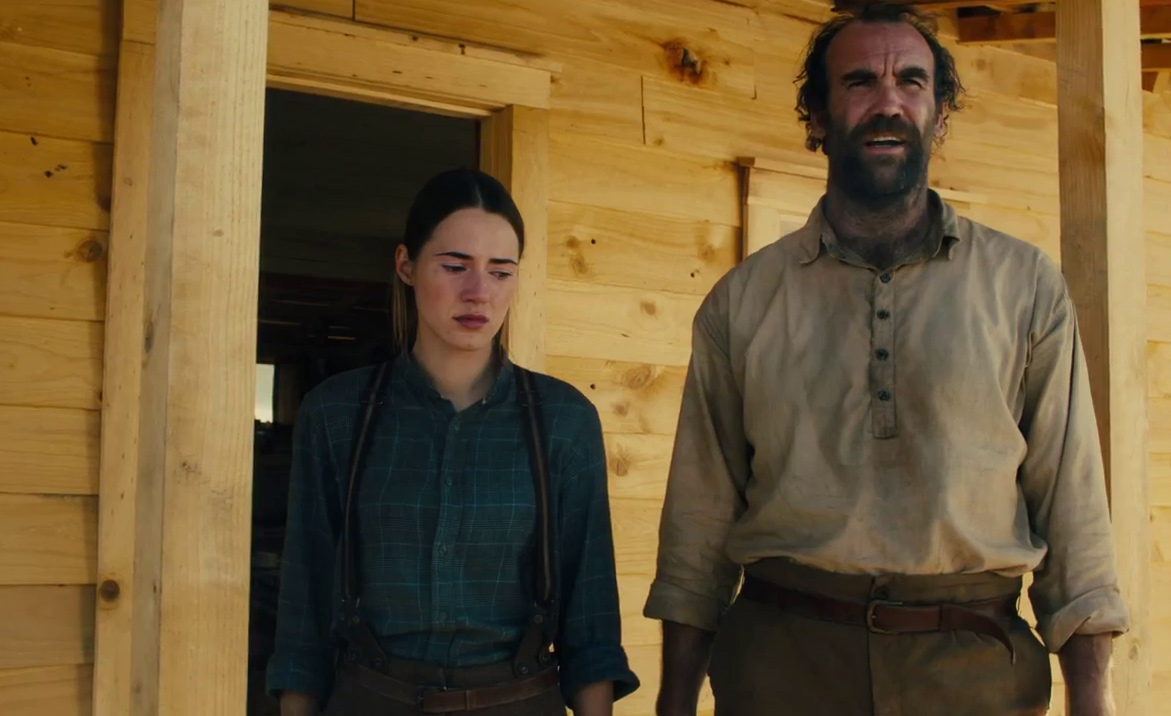
Maclean wasn’t kidding about the usefulness of over-preparation. Cast and crew were almost done for the day, chalking up another early wrap rather than a rush to make use of dwindling light. After observing work on the final shots of the day, Shawty’s once again beckoned, and I soon found myself in the company of folks in great spirits, castmates full of camaraderie and happy to be spending another night at what had become their local.
You could almost forget that the high pressure task of making a feature film lay just a couple of kilometres away, something that would prove dangerous when Rory McCann (Game of Thrones’ Hound) rhetorically asked if he should go and get his strumstick. Minutes after unanimous agreement, I felt like I was in the American Frontier, if not Game of Thrones itself as McCann’s bawdy songs accompanied a few drinks and then a few drinks more.
McCann was but one of an enviable cast Maclean had assembled for his directorial debut, led by the pairing of Kodi Smit-McPhee and Michael Fassbender. The duo team up on horseback across the American Frontier, Smit-McPhee’s character Jay having travelled from Scotland in pursuit of his love Rose, while Fassbender’s character Silas sees money in protecting the naïve fellow. While I’d missed Ben Mendelsohn’s time on set, Caren Pistorious (Rose) and Edwin Wright (Victor the Hawk) contributed to the relaxed atmosphere. Perhaps Michael Fassbender wasn’t overly enamoured with my introduction as being a member of the media, but that would have had more to do with being papped taking a wee earlier in the shoot – a photo that for whatever reason was deemed fit for publication.
If it sounds like I was having a good night, I was. But then before too long, it was the next day…
Maclean was staging some of the climactic elements of his film under surprisingly blistering sun, and thankfully, given the after effects of the preceding evening, there wasn’t anything more I had to do than watch. Having never seen an actor gunned down on camera before, the afternoon became a treat, an insight into how inherently playful these moments on set can be. After watching today’s gunshot victim hurl themselves to the ground again and again, it was time to apply the squibs for blood splatter, and immediately the atmosphere changed, getting a little more charged. Because we got to watch someone getting shot in front of our eyes! This enthusiasm was shared by the poor bugger getting shot, who’d lead the charge to review each take on the monitors, and race back to be shot again.
As the danger and playfulness came to a satisfying conclusion, it was time to do what I was there for – talk with Fassbender about the pic.
FLICKS: Why did you sign on to do this?
MICHAEL FASSBENDER: It was just that John and I had done a couple of films together before. I liked working with him. The short films we’d done [Man on a Motorcycle and Pitch Black Heist] worked out pretty well. And then it was just wanting to do a feature with him and this was his feature idea that he’d been working on himself. So it wasn’t really like, “Oh I really want to do this”. I mean, I did want to do a Western for all those reasons that are obvious. Me being very childish and wanting to run around with toy guns and stuff like that, but it was just really whatever his first feature was going to be about.
How did you first get to know John?
Just through watching the videos for The Beta Band. Conor McCaughan, who’s my agent and business partner in DMC Film, used to represent him. So he cunningly got me in front of a TV with the video. He had the videos and showed me, actually knowing that John had the script in mind for me, which was Man on a Motorcycle. And I was like, “Wow. I’d like to do something with this guy.” And he was like, “Well, it just so happens that he’s got this script about a motorcycle courier”, which is the short film we shot on a mobile phone. In 2007, I think that was. And then we did Pitch Black Heist in 2010 with the intention of getting money to do a feature, and then we got the feature because of Pitch Black. And now we’re here.
In New Zealand shooting John’s debut. How is it here?
I’ve always wanted to go to New Zealand, so we wrote a script so that we could have a holiday here [laughter]. No. It was always on my list of places to come to. I had friends from here and just never got round to it, so it’s a really big privilege to be here filming here and, of course, working with the crews here who are very experienced and very good at what they do, so we lucked out.
That was my patsy question, that everyone from overseas gets asked when they come to New Zealand: “How are you finding it so far? Do you like us?” So there you go. Ticked that box.
I suppose with the experience that the crews have here with Peter Jackson really started here, it’s really nice to see the effects of it.
So being here makes up for not being a Hobbit, then?
Just about. I missed out on that experience, unfortunately, but this has been, it’s been great.
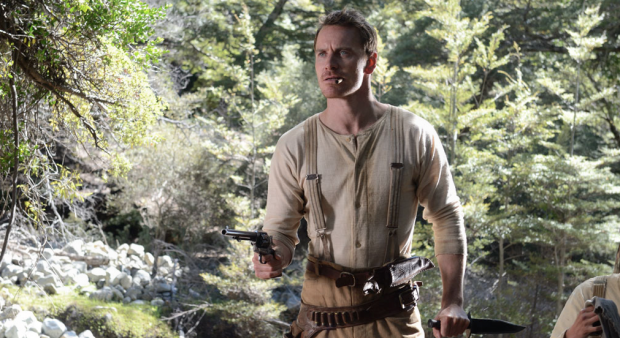
It seems like it’s been one of those years for you where you’ve been consistently busy, but with all those projects coming out around the same time.
Yeah, it just happens that way. I took a year off after Prometheus, so I wasn’t doing anything for a year. Well, I was working with writers, working with John on this, trying to really put energy into DMC, the company that I started with Conor. That takes time and energy, and it takes a lot of attention in terms of working with writers and working with stories, trying to come up with original stories, and working on all the various stuff we’ve got going on. So that really needed time, and also I just wanted to take a break and give everyone else a break as well. And then I started up again, started with 12 Years a Slave, The Counselor, then on to the Terrence Malick movie, then onto Frank and then a little bit of few months’ down time and then onto X-Men: Days of Future Past, and now onto this.
That’s a massively varied schedule of films to do in a year. Is that just the way that the chips fall, or did you like to have all those different sort of things going on?
It’s a priority, really, to try and do as much different stuff as possible. It’s a big deal for me to be trying to do different stuff as much as I can, you know. I have that great privilege of being in that position doing it. That was always what interested me when I started out acting, to try and do different things and explore as many different stories as I can. So yeah, looking good.
You’ve got this what is becoming a bit of a partnership with John, and Steve McQueen as well. Why do you keep doing stuff with these guys?
Because I think I think two heads are better than one, three heads are better than two. It’s just trying to find working relationships that work and also personalities that work. Chemistry, things like that. Always just looking for collaborators, you know? Whether it be other actors that I can work with, that you’re just on the same wavelength with. Not necessarily the same personalities, but you just work well together. I always think whatever it takes to get the best end result. I still like to work with people that are story-focused as a priority, as opposed to ego-centred priorities. Just for the story. Whatever is best for the story. It just makes it a lot easier if you are working with people that are really bringing everything to the table, and hopefully you are, and then you batter it out together. It’s just better, I think. I think there’s very few people that are singular geniuses that make fantastic films.
Really, what I’m loving more and more about the industry is that collaboration, whether it’s between Georgia in makeup, and we’re discussing the look of the character and I’ll say something and she doesn’t agree with it, or I don’t agree with something she does and, in the end, hopefully we come up with something. And then that goes down. That works with props. That works with costume, and with John the director, and everyone. And then you’ve got something that’s working together as a team. Sometimes it works, and when it works, and everybody’s moving really together, it’s a well-oiled machine, and then it’s very fulfilling. It’s also a nice atmosphere to be around.
Everyone seems to be having a very good time down here, and the working atmosphere feels great.
Yeah, because I think again, it’s down to that respect between departments, and everybody is doing their job in their departments, so there’s not that situation with people feeling that some one department’s not pulling their weight here or there or anywhere. People just getting on with what they’re doing.
What have been the most satisfying parts of ‘Slow West’ so far?
I so liked the first draft of this script and then the next evolution of the script, and then the next one and the next one. And he’s just worked really hard, and also I think he’s developed a really good script. And now for us to be on the set, shooting it, the casting process – looking at all the different talents that New Zealand has here to offer. And Michael [Whalley] out there, he did a fantastic audition for The Kid. And we’ve just wrapped Edwin [Wright] today, who was playing Victor the Hawk. These are great actors and, again, we’re really lucky that there’s been enthusiasm for the project down here, so we’ve had a really amazing pick of local talent.
I guess it’s letting a lot of those guys do stuff they wouldn’t otherwise get to do in New Zealand.
Hopefully we’ve brought hopefully a challenge, a fun challenge, for various actors here. I know that all of the ones that we’ve had have been really enthusiastic.
We’ve been blessed, really, in terms of that with the talent that’s here. I know in Ireland it’s kind of the same. We had so many films come through there in the late 90s, from Braveheart to Saving Private Ryan and there was crews that had the chance to work on big films, get experience, and it’s essential, you know? And I think the same thing’s happened here with – as I say – The Lord of the Rings, The Hobbit. I thought Top of the Lake was an excellent series. So we’ve been able to capitalise on the talent here. We were really lucky in that respect.
Both gentlemen gave good chat, and both the production and Twizel had welcomed me in with open arms, but sadly, all too quickly, I was on my way back home. Aside from the audio I’d recorded (succesfully, hopefully) , there was little more to show for the experience than a sunburn and a jealously-inducing text sent to a few female friends: “Just drank whiskey and beer in a shirtless Michael Fassbender’s trailer – and then the costume department came for his pants”. Somehow, though, that was plenty.
Now, a year and a half later, we all get to see Slow West – and considering the four-star review we’ve given it, along with great feedback from moviegoers at our preview screenings, it’s something that you should bloody well watch pronto.

